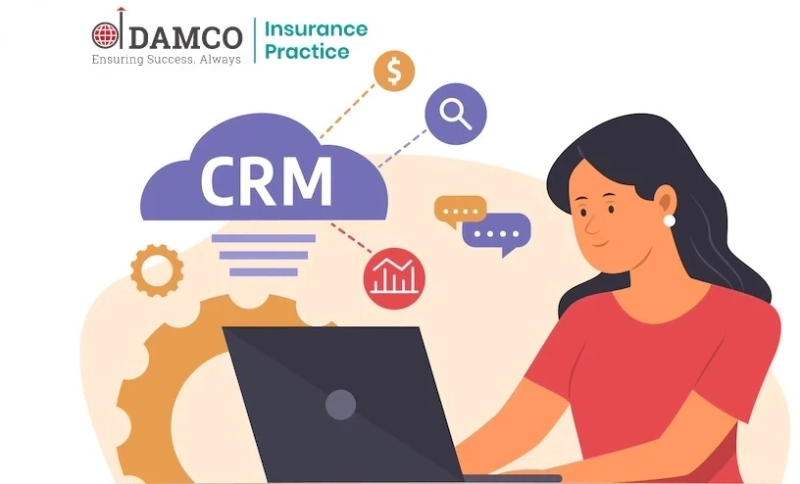When you are looking for the best CRM for insurance agents, there are many things to consider. For instance, you have to verify the vendor’s reputation, check if their customer service team is capable of helping you when needed, and how much time you have before implementing the software. Here are some handy tips that will help you select and implement the right CRM for your insurance business.
Find a CRM that Works for your Business
It’s easy to get caught up in the hype of all these CRM options, but it pays to take a step back and evaluate what you really need. If you want the most effective way for your business to grow, then a good CRM is essential. But if you just need something that works well enough, then by all means choose whatever software is most convenient! To ensure the selection of the best CRM for insurance agents, find one that fits your needs and budget and is also easy to use, implement, and maintain over time. Before you even consider buying a CRM, ask yourself these questions:
- What kind of CRM will best suit my business?
- How easy is this particular software to use?
- Is it intuitive enough for you to get started right away or would you need some training first?
- Does this software have all the features you need in order to run my company efficiently?
- Can it handle multiple users and administrators with ease or will there be trouble keeping track of everyone's data in one place?
- Can the software be configured and customized to meet future needs?
Don’t Hesitate to Contact the Vendor
If you're not sure what the next steps are, or if you have questions about the process of implementing software, ask. It's important to know that there are people who will be able to help with any issues or concerns that arise during this time.
Ask for help when necessary and don't be afraid to seek it out. If something doesn't make sense or isn't working as designed, it's better than waiting until later when everything is more difficult and expensive (and possibly even impossible).
It might sound obvious but sometimes people just do not ask questions because they think they already know everything there is about CRM software implementation- but this is rarely true! We've all had those moments where we wonder "What does this button do?" or "How do I change these settings?" Once again - being proactive will save time later down the road when things aren't going according to plan due to poor planning, schedule adherence, etc.
Make Sure the System is User Friendly
The first and most important step in ensuring successful CRM software implementation is to make sure your system is user-friendly. User-friendliness means that users will be able to navigate through the UI, use their preferred commands and functions, and achieve their goals with ease. The best CRM for insurance agents and brokers is the one they can use seamlessly.
Evaluate the Customer Service
The best CRM for insurance brokers and agents are ones that offer post-implementation customer support. The vendor’s customer service team is one of the most important factors in ensuring your software implementation goes smoothly. You should evaluate them before signing on with any provider, and then again after the contract has been signed.
Check the Vendor or Provider’s Reputation
Ask the vendor or provider to share references of past and present clients—and check them out. If they sound like they are trying to sell you something, it’s best not to do business with them. Also, see if there are testimonials on the provider's website or other places online that speak highly of their services and customer experience. Make sure these testimonials aren't fake. Rather, seek out real feedback from actual customers who have already been through similar experiences! It will help you make an informed decision based on facts rather than hearsay.
Use the Trial Period
If you're considering a CRM, it's important to ensure it works for your business. Before committing to a purchase, try out the software by using it for at least one month. A majority of CRM for insurance companies offer free demos or trials. Make sure to involve the end users, such as brokers and agents, during the trial period or software demo. The trial period allows you to assess the usability, functionality, and integration capabilities of the software.
Conclusion
As we have mentioned, there are many different CRM for insurance companies available in the market. Choosing the best CRM for insurance agents and brokers will help you run your business more efficiently and effectively. By ensuring the system works for you and that all of the necessary goals have been met, you can ensure a successful implementation and unlock long-term success!


